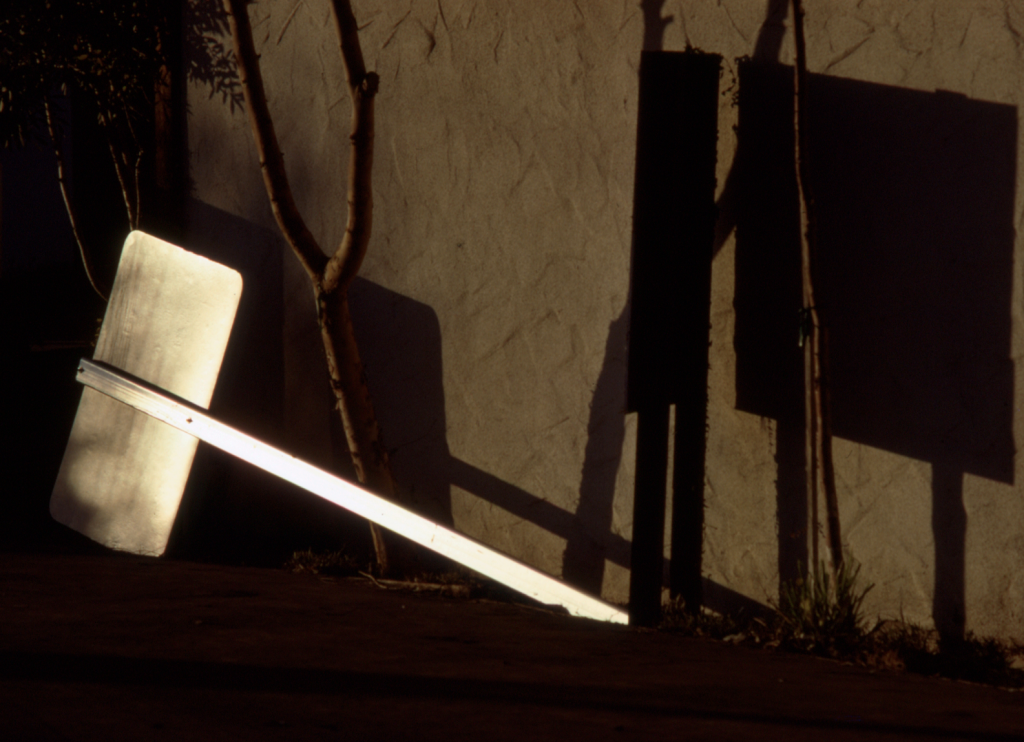
untitled image 1 by Roger Camp
A Funeral in Five Breaths
By Kayla Jessop
One.
I taste sour stomach acid that is rancid on my tongue. While in the car, stopped at a busy intersection, my aunt says that she thinks that it’s from the can’t-even-remember-what-it-was- three-day-old lunch that long left its home, once nestled in my stomach, a side effect from my constant vomiting. But she knows, and I know, that it’s from the nutrients I haven’t been able to stomach putting back into my body. Eating hasn’t been on the menu these past few days.
Two.
I smelled the deep, red roses that sit on the decorative pillar outside the wooden entryway to the lobby before I entered its heavy doors. Their scent is rich, almost too fragrant, as if the receptionist sprayed them with a cheap, rose scented perfume she keeps in her desk for handsome widowers that seek arrangements. I imagine that she thought it smelled inviting, lovely, maybe even homely. But it’s not. It only makes my nausea grow more fruitful. I suppose it’s better than the smell of cleaning supplies that, though are unseen in this dim room with soft couches and decorative cases filled with memorial keepsakes, frames filled with photos of strangers, and brochures that give advice for coping properly, still fill the room of chemicals.
Three.
I hear the receptionist, dressed in a fitting, black pencil skirt and matching blouse, direct my aunt into one of the rooms to the left of the lobby. When we were here two days prior, I remember her voice being soft and gentle. It made me question if there was a volume limit set in the room, but I didn’t ask, my words saved only for when I had to speak: I never asked what the plans would be. I like this one. She would have liked that. I don’t hear their conversation, if there even is one, over the sound of our soft, aching footsteps: our nine closest relatives and friends, not to be one body over the room’s capacity. But we snuck ten in, shuffled the shortest in between us: A sister and father, brother-in-law, great-grandmother, a childhood friend and her daughter, another childhood friend with her daughter, one of my five sisters, and me. My aunt – the sister – goes in first. Her scream fills the lobby. I suppose the police and funeral director were right when I was last here: there was a positive I.D. match to her body.
Four.
I touch the chair rail that lines the beige walls as I enter the room, tracing my fingers on its rigid ledge as I walk in. There’s not a flicker of dust on them, I suppose from the hidden cleaning supplies being put to use. I make my way to my aunt, huddled between my uncle and grandfather in the center of the room, and rub her back in soft, comforting circles. Her usually small frame has gotten smaller in the past days, the spaces between her spine more notable under her shirt, creating dips in the fabric as I rub her back. Unable to stand, the shakiness of my legs fighting to give out, I sit on the blue couch next to the casket, placing my hands on knees. I press my fingers into the deep, sunset-colored bruises that coat my skin. They’d been there since I got the call about my mother’s death three days prior. Wincing at the pain, I move my hands to my chest to feel if I still have a heartbeat. Why don’t my own eardrums feel the pounding of my heart? Was my chest still rising and falling? Before I focused on my small hands on my chest, I questioned if, for a moment, I was dead, too – if the grief had swallowed me whole and dragged me so deep that I didn’t even realize my own heart stopped. It hadn’t. Not yet.
Five.
I see my sister, walking slowly towards me, with her hesitancy in her brown eyes. I only look at them briefly, because at 14, they shouldn’t be filled with so much sadness. She sits next to me, placing my hand in hers as if she was the 22-year-old and not me. I squeeze it firmly. We both look over as we hear my grandmother, talking vividly with her hands to my mother’s friend, her aging voice repeating the same lines we’ve heard over and over these few days: There must have been foul play. She would never do this to herself. We didn’t miss any signs, did we? I almost wanted to say that we hadn’t missed the signs, that we knew she’d been depressed, often spending more days in bed than out. But I don’t speak. Instead, I look at the casket, at my mother’s body lying still. She recently dyed her hair since I saw her last a few days ago; she must have grown tired of complaining about the few grey strands she had on her head. I’m only thirty-eight, she sighed when plucking them out in front of her mirror. We both laughed, calling her old. I study her face closely, but from where I’m sitting, I can only see her just below her hairline, so I take as much of her soft, pink eyeshadow drawn eyelids and black mascara dipped eyelashes as I can. I see the funeral director stand in the entryway, signaling our hour with her is up. I’ll come by soon, she had told my aunt when we entered the room. I didn’t realize how soon she would come back. I wanted her to leave, to give us more time, to pretend she didn’t hear my sobs from the lobby. If there were more time, more moments before I came back in a few days to pick up ashes, maybe I could feel more alive, more connected to my mother. But alas, there aren’t more moments.
I kiss my mother’s forehead one last time, feeling the cold of her skin linger on my lips. At that, I taste the bile in my stomach rising, the smell of death entering my throat. In the silence of the room, the only thing hinting that it’s just me and my mother, I see my chest rise and fall, hearing my heart thumping against its cage. The grief hasn’t swallowed me whole. Not yet.
Kayla Jessop is an MFA candidate at Lindenwood University. In her free time, when she’s not teaching, she enjoys cross-stitching and watching New Girl. Socials: @kaylajessopauthor @kaylamaaarie123
